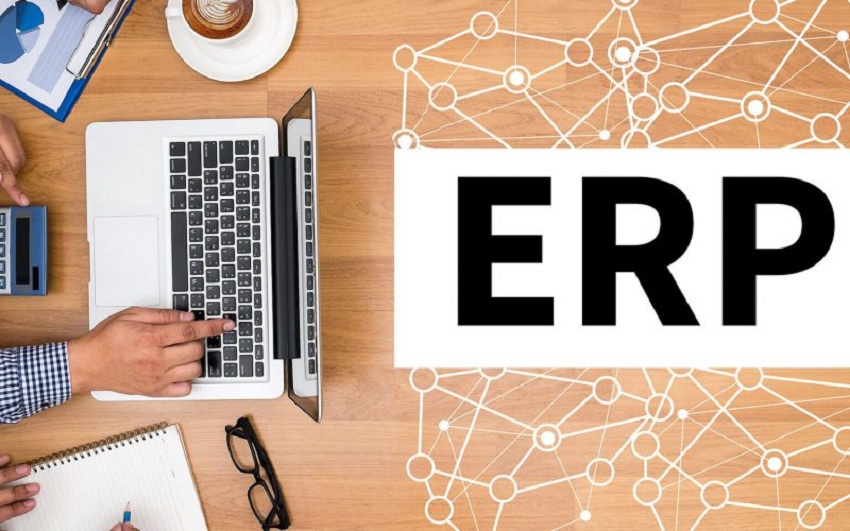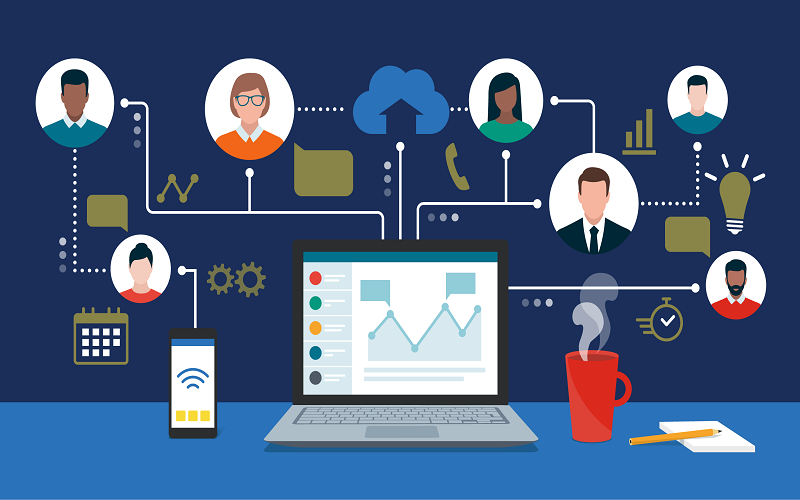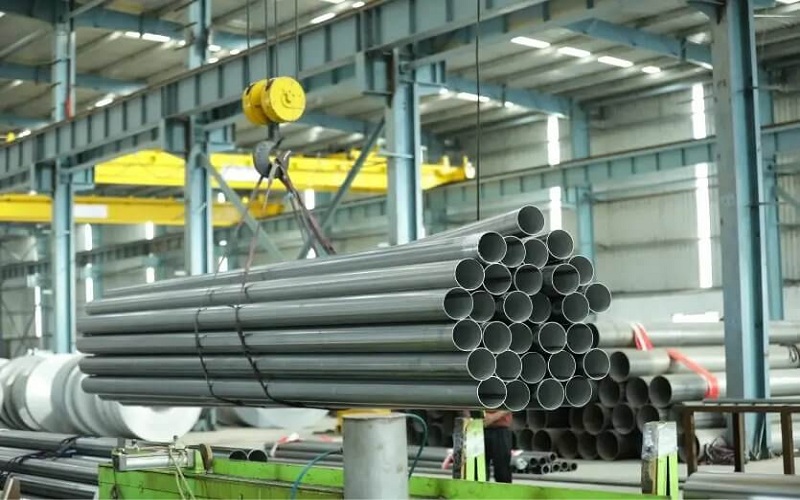There is one thing that all businesses have in common, no matter how big or small they are. All of these involve managing several different parts of a business at the same time.
For example, running a manufacturing or distribution company means you have to plan production, buy supplies, keep track of inventory, fill customer orders, and move products.
To keep these complicated processes running and in sync across a company, it is important to plan and track them well. To reach this goal, you can use a method called enterprise resource planning, or ERP.
ERP solutions are programs or apps that are used to manage all of an organization’s core processes.
Some of these processes are billing, managing inventory, sales, marketing, accounting, purchasing, customer relationship management, supply chain operations, risk management, and many others.
An ERP solution can manage all of these processes at once and in real time. It can also automate the different tasks that are done throughout an organization.
Many small businesses say something along the lines of, “We’re too small for an ERP solution.”
In today’s economy, there is no such thing as a company that is too small to benefit from putting in place an ERP system.
On the other hand, a small business needs to have a competitive advantage if it wants to compete with bigger businesses.
They need to work better and keep up with how the market is changing all the time. One way to reach this goal is to use an ERP system.
By putting in place an effective ERP solution, small businesses can use the operations and management skills of large ones.
As the old saying goes, there’s no time like the present, so you should make the most of it. So, this is why now is the best time for small businesses to invest in an ERP system.
Let’s look at the many good reasons why small businesses should invest in an ERP solution right now.
Reasons why small businesses should invest in an ERP solution
The following is a list of the most important advantages that may be obtained through the implementation of an ERP system, which are among the many that are available.
Power to make fact-based decisions
ERP systems help make sure that reliable data is available, which helps improve both the quality of decisions and how quickly they are made.
The management team can quickly figure out if there are any problems with production that could slow things down or make delivery times longer.
In addition to keeping an eye on budgets, financial controllers can quickly look at orders and stock levels to help make financial planning more efficient.
The management is able to make good decisions about how to use resources and make investments, as well as respond quickly to changes in the economy.
Accountability and transparency
An enterprise resource planning (ERP) system provides a central database so that important information from all departments can be shared and accessed by everyone in the organization.
This not only helps cut down on mistakes and make data more accurate and easier to find, but it also encourages accountability and makes it possible for information to flow freely and openly across the company.
Increased productivity
With an ERP system, a company’s manufacturing departments can better keep track of stock levels in relation to the number of orders and delivery times.
If company processes are streamlined, employees will be able to focus on more difficult projects. This will lead to more work being done, which will improve productivity.
Increased efficiency in business processes
ERP solutions make it possible to automate laborious and repetitive procedures, which in turn help to increase the efficiency of corporate processes.
This indicates that jobs will become more clear, which will help to reduce or eliminate inefficiencies and mistakes made by staff.
Critical competitive advantage
By using new technologies, smaller businesses can get a leg up on their competitors. ERP is one of the technologies that a small business can use to improve its chances of success in a market where competition is very high.
This is because an ERP solution has the potential to help businesses in the following ways: maximizing all of the business’s resources in line with competitive strategies; allowing for flexibility in differentiating products and services; shortening delivery times; and improving customer service and keeping customers.
Because of these things, ERP becomes a strategic tool and an effective way to gain a competitive advantage.
Monitoring business performance
ERP software keeps information up to date in real time. So, it’s easy for the owners of small businesses to keep an eye on how different parts of the business are doing and figure out which ones aren’t up to par.
Once a problem has been found, steps can be taken to fix it, which will lead to an overall improvement in how the business runs.
Centralized information
When there are multiple data centers, the information gets out of order. ERP makes sure that all of the information from a company’s many departments and processes is collected and stored in a single database.
It lets data from different departments be put into a single database, which makes it possible to do things like accounting, sales, inventory management, and distributing. This makes it easier to get the data and takes a lot less time to get it and use it.
Lessening the amount of work that employees have to do
ERP helps employees by cutting down on the amount of work they have to do, like entering information on multiple platforms. This makes employees feel more comfortable and happy.
When workers are happy with their jobs and the way they work, they are more likely to be willing to work harder to help the company succeed.
Better connections with the clients
If a small business doesn’t have the systems in place to handle customer-related tasks, the number of pending customer orders, requests, and other forms of communication can grow. This can cause both current and potential customers to leave the business.
On the other hand, putting in place an ERP system can make it easier to answer questions or complaints from clients by making the information easier to find. Also, it will make it easier to handle orders and requests from customers in a way that works well, which will undoubtedly lead to better relationships with those customers.
ERP systems also make it possible to look at how customers act, which helps find customers’ recurring needs and places where customer service could be improved. This is a very important step toward giving customers better service.
Reduction of operational costs
An enterprise resource planning system gives access to real-time and accurate data about daily operations. This allows a business to improve its business processes and plans while also trying to cut its administrative and operational costs.
With a modern ERP system, the distributor has a better than 97% chance of getting the product to the customer on time. This makes it the most important tool for distributors.
In addition, it gets rid of costs that were incurred when data was entered wrongly into spreadsheets or when mistakes were made because of delays or wrong information.
Better management
The integrated system gives managers a complete picture of the company in one place, which makes it easier for them to plan and make decisions.
After all of the business departments’ procedures have been integrated and streamlined, managers can focus on planning activities, keeping costs under control, and looking for ways to grow the business.
The system makes it easier for the management team to keep track of how the different departments are doing and come to the right conclusions.
Making communication better
When communication breaks down, it can be harder to make decisions and can lead to mistakes that can cost an organization a lot of money.
When everyone works in the same area, it’s easy to keep the lines of communication open. However, as the business grows and more people are hired, this task gets harder and harder.
When information doesn’t move easily from one department to another, it’s possible that important information will be lost or ignored, which can lead to financial losses.
ERP software makes sure that data can move freely between all departments and keeps everyone up to date on what’s going on in the business.
Getting the different departments to work together
ERP software lets different parts of a small business access the same or similar important information at the same time.
This makes sure that each department has access to the right and most important information. This makes it easier for departments to work together and cuts down on the time wasted waiting for logistics between departments.
Changing the way business is done
A company that is having trouble growing can use an ERP system to help it change. This can be done by streamlining operations like planning production and taking care of orders and cutting down on the amount of work that is done twice.
ERP gives employees powerful business tools that help them do their jobs better and help the organization as a whole more.
Flexibility and long-term service
Some enterprise systems lose their value after five years. After making an initial investment in an ERP system, a company does not need to make additional investments in additional computer software regardless of how many years pass or how large the company becomes.
Most enterprise resource planning (ERP) systems are made to grow with your small business and to work with other systems; both those you already have and those you will get in the future.
Final words
As was discussed previously, there are numerous advantages that can accrue to a small company as a result of the implementation of an ERP system.
ERP solutions could help small businesses in many ways, such as by making it easier to find information, making business processes more efficient, improving communication, and making workers more productive.
Any small business that has found that these benefits are important to the company’s growth should start using an ERP system as soon as possible.
Even though it will cost money, time, and effort to implement such a solution, the cost savings and improved performance that will result from installing the right ERP will more than make up for the short-term costs.












